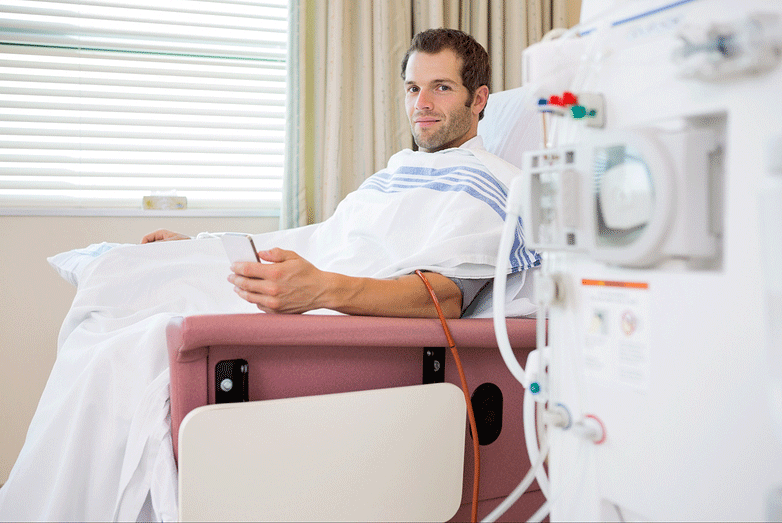Non-emergency medical transportation for dialysis patients requires special attention to a very particular set of needs. Patients deserve a comfortable, safe and timely ride, as well as a ride that is affordable. All of these things are especially important considering most dialysis patients rely on medical transportation 3 times per week.
Healthy kidneys keep your body in check by removing toxins and balancing out the body. When you suffer from end stage kidney failure your body no longer does this for you, hence why dialysis is necessary to maintain life. Dialysis is a common form of treatment that has been used since the 1940’s.
End stage kidney failure is defined by a loss of around 85% to 90% of kidney function. Patients with end stage kidney failure require life-long dialysis treatments or a kidney transplant. In some cases, acute kidney failure can clear itself up after treating the cause, in which case dialysis is a temporary form of treatment.
There are around 217,000 Americans receiving ongoing dialysis treatment. This adds up to around $11.1 billion nationwide.
Those suffering from kidney failure go to dialysis facilities for treatment typically around three times per week. These treatments are provided in a medical facility as opposed to at home. According to government research, just ¼ of dialysis patients arrive in privately owned cars. The remaining ¾ of patients arrive in passenger vans wheelchair cars, taxis or buses.
One of the largest hurdles patients often face is access to transportation services that provide adequate physical assistance. No need to worry, door through door services, wheelchair and stretcher transportation are among our specialties.
Stellar Transportation is proud to provide superior non-emergency medical transportation to dialysis patients of all mobility and levels of overall health.
The Dialysis Process
After arriving at a dialysis treatment center, the patient is ushered into a comfortable seat of some kind. One arm is propped up and a medical technician inserts two needles into blood vessels located near the wrist. One needle is used to capture the blood and the other is used to return the blood into the body. Both of these needles are attached to plastic tubes that lead to a dialysis machine sitting next to the patient.
In total, the process generally lasts around 3 hours as the machine goes to work removing wastes and extra fluid from the blood. There are a number of ways patients stay busy while the process goes on, perhaps reading a book or watching the news. Some take the opportunity to nap. Dialysis might not be fun and it’s certainly time consuming but it’s a life saving process.
The process is usually considered a temporary measure until a kidney transplant becomes available or normal functions resume. Dialysis may be necessary due to a birth defect, disease or injury.
Dialysis does a couple key things:
-It removes wastes from the blood, such as water and salt. Without treatment, these wastes build up in the body until reaching unsafe and deadly levels.
-It helps put a safe amount of certain chemicals into the body such as potassium, bicarbonate and sodium.
Cost Of Dialysis Patient Transportation
Medicare will not cover transportation to and from treatment. Medicare will only cover the cost of an ambulance in a medical emergency. If an ambulance is not necessary, Medicare will not cover the costs of other transportation forms either.
That’s why we vow to provide a competitive rate to help make things more affordable for our patients. If transportation is a financial burden or not affordable at all there are some programs that may be available to help cover costs. Some State programs that offer assistance to dialysis patients include Area Agencies on Aging, the American Red Cross, the American Kidney Fund and National Kidney Foundation.
The Importance Of Compassionate Non-Emergency Medical Transportation For Dialysis Patients
Following dialysis treatment, patients are often tired, drained and nauseated. It’s so important that patients have a comfortable and reliable ride back home to help ease the burden of these symptoms. Many don’t want to return for more treatments because of the way treatment makes them feel, but if one begins missing treatments they will become a lot sicker until kidney failure proves fatal.
Stellar Transportation is focused on providing the most comfortable and compassionate ride possible to all of our patients. Our drivers are fully trained on what you are going through in order to provide the most compassionate care possible. Contact us today for a free quote!

